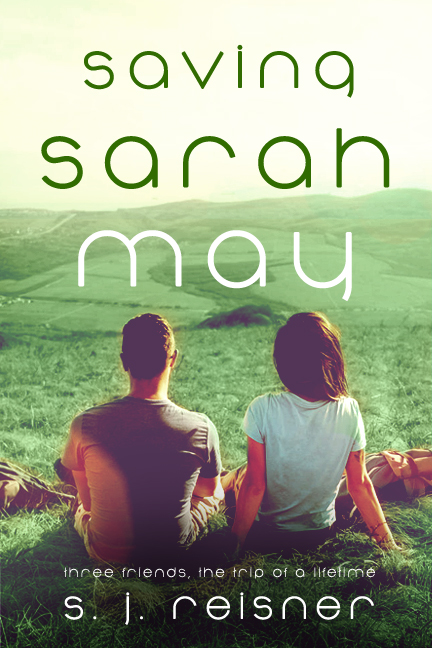To Pitch or Not To Pitch
That is the question.
I started thinking about this over the weekend – whether or not to pitch one of my new series ideas to a bigger publisher at this year’s Colorado Gold. Ultimately I decided I should probably wait until 2017, when my series schedule clears up. Even then, I may just keep it to myself.
So how did I come to this decision and how can you decide if pitching is right for you?
FOR NEW AUTHORS
Do you have a finished book, revised, edited and ready to go? Are you seeking traditional publication? Then you absolutely should pitch! There’s no reason not to. The worst that could happen is the particular editor you pitch could say they aren’t interested. In that case you’re no worse off and you at least have some pitching experience under your belt.
FOR TRADITIONAL AUTHORS
Do you have a finished book, revised, edited and ready to go? Do your current contracts allow you to pitch to other publishers? Usually in this instance you’re likely looking to get into another genre, or you’re writing under a second (or third) pen name. Then there’s no reason not to! Go for it. You’ve got this!
FOR INDIE AUTHORS
Do you have a finished book, revised, edited and ready to go?
Why would you pitch at all? First, getting traditional publication credits and contracts is great for audience building. Especially if you can get contracts where the publisher doesn’t ask for first right of refusal or you can continue to write under the same pen name. Many of the more author friendly presses (usually smaller presses) don’t have a lot of those annoying clauses that will stand in the way of your indie career. Some of those presses want to be PART OF your career. Not your entire career. Second – getting a contract can be a challenge, and challenges are fun. Those are the only two reasons I even consider pitching. The audience building and the challenge of it. It also lends additional credibility to your indie stuff since there is still that publishing crowd out there who equates independent publishing with not being able to hack it in the world of traditional publishing. I like proving people wrong. Just a side note here: That couldn’t be further from the truth. A lot of indies are traditionally published authors who decided to strike out on their own for whatever reason. Also – readers don’t tend to give a rat’s ass either way unless your indie stuff is so poorly edited that its unreadable. The only people who make a big deal about indie vs. traditional these days are people who work in publishing (including editors, agents, and writers who still believe one can make a career as a midlist writer with a big-five publisher).
Out of professional courtesy though, you probably don’t want the book you’re pitching to be competing with your existing stuff. So, even if the genre is similar, you must weigh the pros and cons carefully. For example, can you afford to possibly get into a non-compete contract? After all, a lot of bigger publishers still have first right of refusal clauses and non-compete clauses in their contracts. You might have to add a second pen name to your repertoire. You definitely want to research the publisher(s) you’d be pitching to before making the commitment to pitch. And by that I don’t just mean what genres they’re interested in. I mean you should research their contract terms before wasting your time, or theirs. If you won’t sign a contract with first right of refusal, then don’t pitch to a publisher who includes that standard in every contract they offer.
But Steph, you’re saying, aren’t you putting the cart before the horse? You don’t even know at that point if you’re going to be offered a contract! Well, you don’t make a bid for a contract thinking you won’t get it. You put in the bid (i.e. pitch, then submission) hoping it’s compelling enough that you will be offered the contract.That’s how it works in ANY industry where bidding for contracts happens. And that’s essentially what authors are doing when they pitch, get the offer to submit, and then submit their manuscript. They’re expressing their interest in bidding for a contract, if the publisher is interested they’ll ask for a proposal (i.e. your submission package), and then they award contracts on the proposals/bids they think will bring in the most profit.
If you look at it like that, I find it’s not nearly as intimidating and it puts the author, editor, and agent on equal footing. We’re all professionals in the same business, just different areas. Publishers need content to publish, agents need content to sell and we’re the ones providing the content.
Something Indies and Traditionally published authors also need to consider is their current workload and publication schedule. Will your existing workload and schedule support another project? If no, halt that pitch! If yes, go for it. This was the main deal breaker for me this year. I decided my current commitments with ongoing series work and current contracts would prohibit me from taking on another contract. So I am going to wait until I finish a couple of series.
Perhaps 2017 will be the year I decide to pitch again. Then again, I’m starting to feel a bit selfish with it. I have enough confidence that it’s such a fun idea for a series that I might just keep it to myself and go indie with it. We shall see…
What are your reasons for pitching or not pitching?



